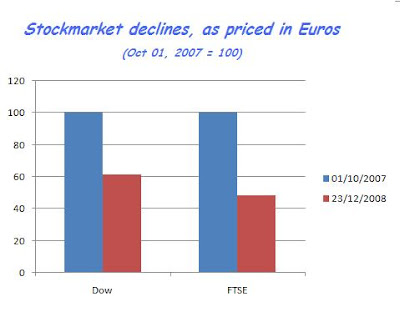From what I read, some people are becoming survivalist: storing food, water, medicines, cash, even weapons.
Perhaps it's no coincidence that BBC is currently screening a
remake of Terry Nation's gripping 1975 post-catastrophe series, "
Survivors". But that series assumes that most people have died suddenly because of a virus, so the ecosystem has not been destroyed by desparate, starving victims. I don't think Survivors is the model we should use. If we are to survive, it'll be together, in our populous societies, because if society breaks down, you and I are unlikely to emerge as the last people standing. Lone heroes don't win; this is a fantasy.
I think spare supplies are a good idea, because there could be some disruption, which could affect the very young and elderly; so we need ways to keep warm, eat and have clean water in an emergency. And it's important to make your home secure against a rise in burglary, which is associated with economic downturns; and not to go out after dark without at least one or two companions. Weapons are
another matter: "
guns in the home are far more likely to be used against members of the household than against intruders."
Pace the doomsters, the UK and the USA will feed itself. We may end up eating more veg and less meat; and we may be using public transport instead of cars; personally, that would simply take me back to the 70s, when I was slimmer and fitter. Globally and locally, there is enough to feed the world, although not enough to overfeed it or encourage unproductive men to sire children.
Two aspects of the current crisis worry me:
1. The present method of organising resources may be replaced, not by one dreamed of by well-fed Western socialists, but by a cruel, remote, commanding elite as in North Korea or East Germany, who far from minimising scarcity will use it to get and maintain power.
2. The transition from this system to whatever replaces it, may be disorderly and involve suffering for many people.
This is why I think the underlying issue for us is to preserve and strengthen democracy, to increase the chances that both the journey and the journey's end are acceptable.















